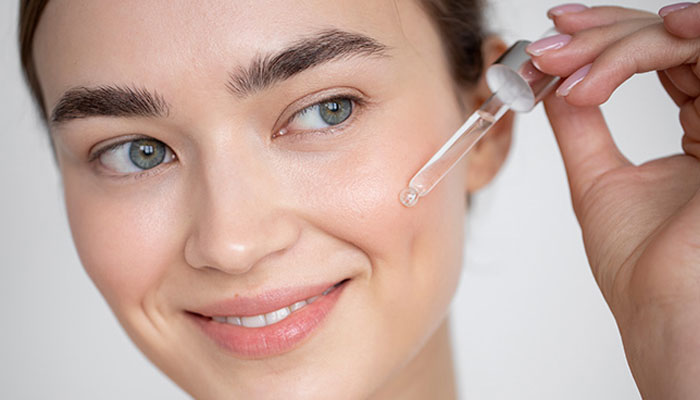What is hyaluronic acid? All about trendy serum everyone's raving about
Many people take hyaluronic acid as a supplement, but it’s also used in topical serums, eye drops, and injections
Have you ever wondered what exactly the newest skin-care elements in your cosmetics are made of?
You've likely seen the ingredients listed on face creams, serums, and cleansers in the aisles of your favourite beauty retailer.
But what does hyaluronic acid really do for your skin, and does it live up to the hype?
What is hyaluronic acid?
Your body naturally produces hyaluronic acid, commonly referred to as hyaluronan, which is a transparent, gooey material. Your skin, connective tissue, and eyes have the highest concentrations of this substance, Healthline reported.
Its primary job is to retain water to keep your tissues hydrated and lubricated.
Hyaluronic acid has a variety of uses. Many people take it as a supplement, but it’s also used in topical serums, eye drops, and injections.
Hyaluronic acid benefits
- Promotes healthier and more nourished-looking skin.
- Can speed up healing wounds.
- Alleviates joint pain by keeping bones lubricated.
- Reduces symptoms of acid reflux.
- Relieves dry eye and discomfort.
- Preserves bone strength.
- Prevents bladder pain.
Possible side effects
Hyaluronic acid is generally considered very safe to use; however, people with a history of cancer or having it are advised not to take it as some evidence shows it might make the cells grow faster.
Besides this, pregnant or breastfeeding ladies are also advised not to take it, as it has not been researched.
How to use it?
Dermatologist Debra Jaliman says that hyaluronic acid is safe to pair with any of your favourite skin-care essentials: "There aren't any ingredients I'm aware of that don't pair well with it".
So, layer away.
-
James Hetfield's health struggle amid his 2026 Las Vegas Sphere Residency
-
Lamar Odom details struggle with addiction and ‘amazing’ rehab experience
-
Hilary Duff details how she protected her children’s mental health amid divorce
-
Courtney Love recalls how ‘comparison’ left Marianne Faithfull ‘broken’
-
Katherine Short became vocal ‘mental illness’ advocate years before death
-
Demi Lovato claims fans make mental health struggle easier
-
6 celebrities who have been vocal about anxiety and 'panic attacks'
-
Lewis Capaldi details 'impact of Tourette' on his career












